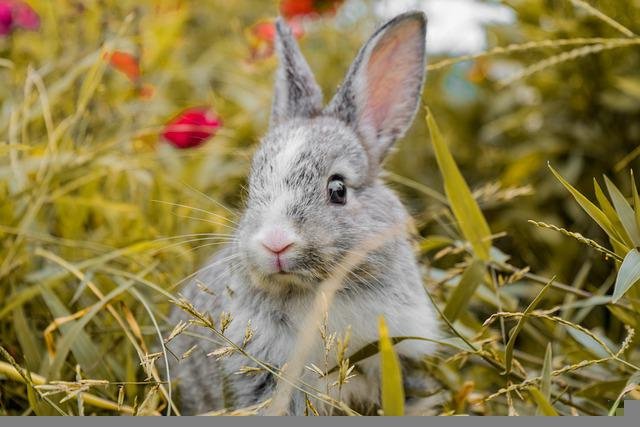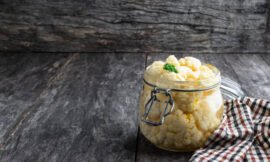Almond milk: Is it Safe for Rabbits?
Almond milk is an excellent alternative to cow’s milk for those who are unable to consume cow’s milk or do not prefer to drink it. It is sugary and vegan-friendly at the same time.
You may believe that because rabbits are herbivores, this vegetarian alternative is a suitable beverage to provide your bunny as a treat; yet, the question remains as to whether or not rabbits can consume almond milk.
Rabbits possess stomachs that are very sensitive, and anything out of the ordinary has the potential to disrupt their digestive tract. Your rabbit should not be given almond milk for this reason alone; you should avoid doing so.
When it comes to their liquid intake, rabbits, in contrast to humans, do not need as much diversity as we do. They only need water once they reach adulthood, in contrast to when they are young and dependent on their mother for milk.
There are other types of milk that may be given to orphaned newborn rabbits, but almond milk is not one of them. In the case that you are left with orphaned newborn rabbits, there are alternatives that can be supplied.
Why is it that rabbits are unable to consume almond milk?
If you’ve kept rabbits for any length of time, you’re probably aware that these fragile critters have digestive systems that are quite sensitive. Your bun may grow really ill by consuming even a tiny portion of the incorrect food, so be careful.
The disease known as gastrointestinal stasis, which may be deadly if it is not addressed, is one of the most serious problems that rabbits have when it comes to their digestion.
Adult rabbits do not need milk; in fact, they cannot digest lactose and can experience a number of unpleasant side effects if you give them milk to drink. Even though almond milk does not contain lactose, drinking it will nonetheless throw off the delicate equilibrium that their stomachs have developed.
It is necessary for young rabbits to consume the milk that is produced by their mothers, but this milk is the only source of all of the vital nutrients that a young rabbit will need.
Many individuals make the mistake of giving cow’s milk to a young rabbit in the mistaken belief that this would be helpful; nevertheless, cow’s milk does not give any nutritional benefit to a rabbit since it is naturally built for a calf rather than a young rabbit.
Even though it’s hard to believe, humans are the only creatures who consume milk produced by other species. While milk from cows, goats, and sheep do have some nutritional value, it’s not necessary for your survival to consume any of this milk.
What Kind Of Milk Should I Feed My Newborn Rabbit?
Unfortunately, not all does will make it through the birthing process, and in certain instances, a mother may choose to abandon her young. In situations like these, it is up to you, the owner, to provide care for the helpless kits, and one of the first questions that will likely cross your mind is what it is that you need to provide food for these little bunnies.
Is Almond Milk Safe for Rabbits to Consume?
When rabbits are initially born, they do not open their eyes until after a number of weeks have passed. As soon as this occurs, they will be able to begin consuming hay and junior rabbit pellets as a source of nutrition. You will have to give them something else to drink in the meanwhile as a replacement for their mother’s milk.
As was previously said, you are not permitted to consume milk from another animal. Your rabbit will not benefit in any way from the consumption of these kinds of milk, since they are devoid of any nutritional value and are likely to cause more damage than good.
On the other hand, there are a lot of recipes available on the market that are intended for young animals.
Since rabbit milk has the highest number of calories of any other mammal’s milk, the ideal alternative would be to use a kitten replacement milk that is rich in calories.
Goat’s milk is the one and only exception to the rule when it comes to milk from animals. This is often done in order to assist wild rabbits that have lost their parents.
What Should I Do Now That My Rabbit Has Consumed Almond Milk?
It is not recommended that you continue to offer your rabbit almond milk on a regular basis since this is a practice that should be discontinued. It is essential that you observe your rabbit’s bathroom habits over the next several days to ensure that he is maintaining his regular routine of urinating and defecating as expected.
Make an immediate appointment with your veterinarian if you see anything that seems out of the ordinary.
If, on the other hand, your rabbit was able to sneak a sip of liquid from a cup or bowl that you had left on the floor, it is doubtful that this would result in any significant health issues. In spite of this, it is essential to maintain vigilance over your rabbit at all times.
What kind of beverage is ideal for rabbits to consume?
Once they have beyond their baby stages, rabbits no longer have a need for water. If you want to be a responsible rabbit owner, one of the most important things you can do is guarantee that your rabbit has unrestricted access to clean, fresh water at all times.
You can feel free to alter this at the start of each new day, but if your rabbit consumes all of it, you should make sure to replenish it as required.
There is no particular kind of water that is required for rabbits; you may get it straight from the sink. If you would be willing to drink the water yourself, then it is safe enough for your rabbits to consume as well. This is a good rule of thumb to follow.
What Is the Appropriate Amount of Water for My Rabbit?
It’s possible that learning that rabbits may drink as much as 2 cups of water each day would come as a surprise to you. Having said that, the answer will be determined by the size of the rabbit as well as its overall health.
For instance, pregnant does tend to consume much more water than the typical person does. In any event, you need to make sure that your rabbit has access to a sufficient amount of water to last it the whole day.
Maintain a constant supply of water that is uncontaminated and pristine.
It’s possible that you’ll notice that when you fill the water bottle or bowl that your rabbit uses, you’ll come back the following day to discover that your pet hasn’t used as much water as you would have anticipated it would.
But you shouldn’t be too concerned about this since rabbits consume a lot of leafy greens, which have a high water content, and it’s possible that they are obtaining a sufficient quantity of water from these foods.
Which Is Better To Use, A Bowl Or A Water Bottle?
There are two primary alternatives available to you when it comes to providing your rabbit with water: a bottle of water or a bowl of water. Because every rabbit is unique, the option that you choose is ultimately determined by the preferences of your particular rabbit.
On the other hand, many people believe that a bowl would make it simpler for your rabbit to eat its food.
Because of this, your pet will be able to drink more water without exerting as much effort, which will almost certainly lead to their being healthier overall.
If you want to give your rabbit a bowl, you must ensure that it is sufficiently weighty to prevent the rabbit from turning it over and spilling its food. In addition, since drinking in this manner tends to result in more mess, opting instead for a water bottle may be the more handy option.
Because of this, the best way to choose is to test both of them and see which one your rabbit responds better to; as was said before, there are many variations.
Conclusion
The milk of their mothers must be consumed by young rabbits during the first few weeks of their lives. Having said that, the only thing they need after this is water. Even while almond milk does not contain lactose, it still has the potential to disturb the sensitive digestive system of a rabbit, which is why it should never be given to a rabbit.
15 Amazingly Simple Dust-Free Home Ideas
Dried Cranberries: Safe To Eat By Rabbits?
Are Walnuts Eatable By Rabbits?
Shrimp Comparison: Ghost Shrimp Vs. Amano Shrimp





